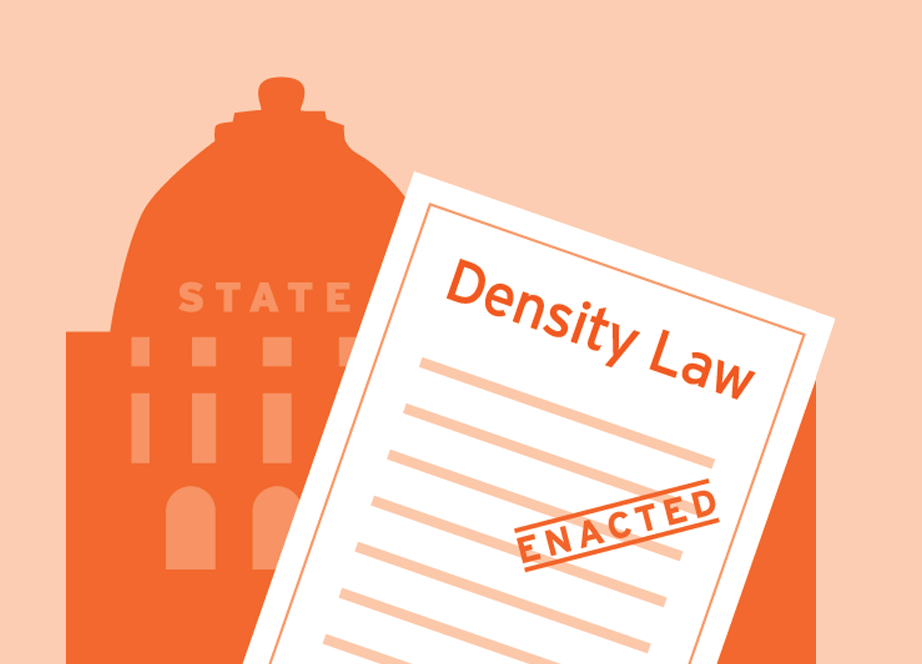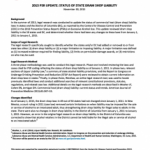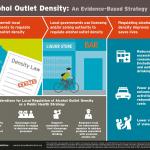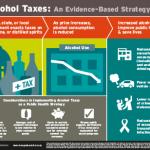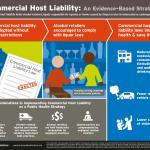Excessive alcohol use is an often-overlooked public health problem. Alcohol consumption is associated with increased risk of disease and increased health care costs for society. Public health advocates can use several evidence-based strategies to reduce excessive alcohol consumption.
Three primary regulatory strategies are alcohol taxes, commercial host liability, and reduced alcohol outlet density. Alcohol taxes reduce consumption through price increases, resulting in fewer motor vehicle crashes and lower rates of crime and violence. Commercial host liability laws hold retailers legally responsible for injuries or harms caused by illegally serving intoxicated or underage customers. Reductions in alcohol outlet density decrease the availability of alcohol and lessen opportunities for drinkers to interact with one another, which reduces excessive alcohol consumption and related harms, including violence and public nuisance issues. To learn more about these and other approaches, explore our alcohol harm reduction resources below.
